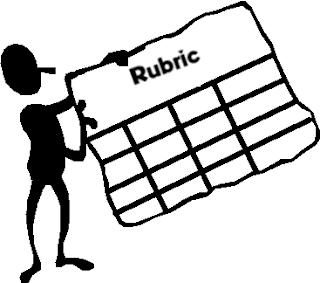The experience of participating in a descriptive writing workshop offered me an opportunity for growth and development as a teacher. Throughout this blog, I will reflect on the workshop's planning and execution
In a lucid ice-breaker activity, student teachers were paired up on a mini-date and asked to describe their favorite food and place without mentioning any names. As a whole, I found this activity to be exciting and engaging for everyone-an integral part of the learning process.
Following, my group members and I delved into the content of the workshop. Descriptive writing was defined, along with some of its purposes. Descriptive writing employs vivid and sensory language to create intricate mental images, eliciting emotions and effectively conveying information. I think that students who master this skill are equipped to communicate their emotions, observations, and thoughts vividly and connect with others on a deeper level. Additionally, descriptive writing develops students' literary skills and fosters their ability to perceive and communicate the intricacies of the world around them.
The workshop emphasized the importance of teaching descriptive writing. It was noted that teaching this skill acts as a catalyst for students' observational and language abilities. It sparks their creativity and improves their ability to engage readers.
A central focus of the workshop was the systematic dissection of elements that make up descriptive writing. A meticulous examination was conducted on these elements, as the workshop elucidated how each of these elements contributes to the creation of a compelling and immersive descriptive piece, seamlessly blending the technical and artistic aspects of writing.

The workshop also presented invaluable insights by referencing "Tips for Teachers When Teaching Descriptive Writing" as provided by Reading Rockets. These tips encapsulate essential strategies for educators, including the modeling of descriptive writing, focusing on the five senses, offering constructive feedback, and fostering a culture of revision. These practical guidelines underpin the crucial role that teachers play in facilitating the acquisition of descriptive writing skills among their students.
There were also suggested activities that teachers could use to develop students' descriptive writing skills as well.

Throughout the workshop, a plethora of engaging activities were incorporated to enhance the understanding and practical prowess of descriptive writing. These activities ranged from sensory exercises that required participants to craft descriptions while eating a lollipop, to collaborative writing assignments that fostered creativity and meticulous word selection. These hands-on activities not only made the learning experience enjoyable but also afforded participants the opportunity to immediately apply the concepts discussed, reinforcing their understanding.
.gif)

Another pivotal dimension of the workshop was the discussion surrounding the assessment of descriptive writing. To facilitate students' comprehension and meet the expectations of the genre, well-defined rubrics, peer assessments, and self-assessments are indispensable tools. The emphasis on structured assessment mechanisms highlights the importance of an objective evaluation framework.
Furthermore, the workshop explored the intersection of descriptive writing with the broader concepts of the writing process and the "6 + 1 Traits." It was elucidated how each of these traits is applicable to descriptive writing and how they can be harnessed for the evaluation and enhancement of students' work.
With its interactive and instructional design, the workshop ensured that the audience stayed actively engaged throughout. The combination of theoretical principles and hands-on engagement was instrumental in enabling participants to comprehend and appreciate the intricacies of descriptive writing.
As a result of my experience in the descriptive writing workshop, I have gained an in-depth understanding of this genre as well as practical tools for teaching and assessing descriptive writing. As a result of this journey, I am energized and ready to share this knowledge with students and fellow educators, confident in the transformative potential of descriptive writing as a vehicle for promoting effective communication and literary ability.



.gif)


.gif)


.gif)








This is an insightful and comprehensive breakdown of the descriptive workshop. Teachers will find this blog to be a valuable resource, offering a clear roadmap on how to teach descriptive writing. Keep up the great work Sabrina!
ReplyDeleteHi Sabrina, your detailed reflection on the descriptive writing workshop is both comprehensive and enthusiastic. A well-rounded learning experience is demonstrated by the inclusion of interesting icebreaker activities, in-depth material examination, and useful applications through hands-on exercises. Your methodical breakdown of descriptive writing's components, emphasis on how important it is to teach it, and citation of useful advice for teachers all point to a well-considered and calculated approach. A rich and significant learning experience is further enhanced by the use of assessment tools, alignment with the writing process and "6 + 1 Traits," and the interactive style of the workshop. Excellent work!
ReplyDeleteSabrina, your blog is an enlightening read, offering an overview of your learning experience. Your insights into the nature and purpose of descriptive writing are particularly valuable. You rightly point out that mastering descriptive writing allows students to vividly communicate their emotions, observations, and thoughts, thereby connecting more deeply with others. This skill is indeed crucial for their overall literary development and helps them perceive and articulate the world around them more effectively.
ReplyDeleteWhat an insightful reflection on your experience in the descriptive writing workshop! Your detailed account not only captures the essence of the workshop but also highlights the significance of descriptive writing in fostering effective communication and literary skills. It's evident that the interactive and engaging activities played a crucial role in enhancing participants' understanding and application of the concepts discussed. The emphasis on assessment tools and the integration of broader writing concepts further enrich the learning experience. Your enthusiasm and readiness to share this newfound knowledge with students and fellow educators reflect the transformative impact of the workshop. I look forward to hearing more about your journey as you incorporate these valuable insights into your teaching practices!
ReplyDelete